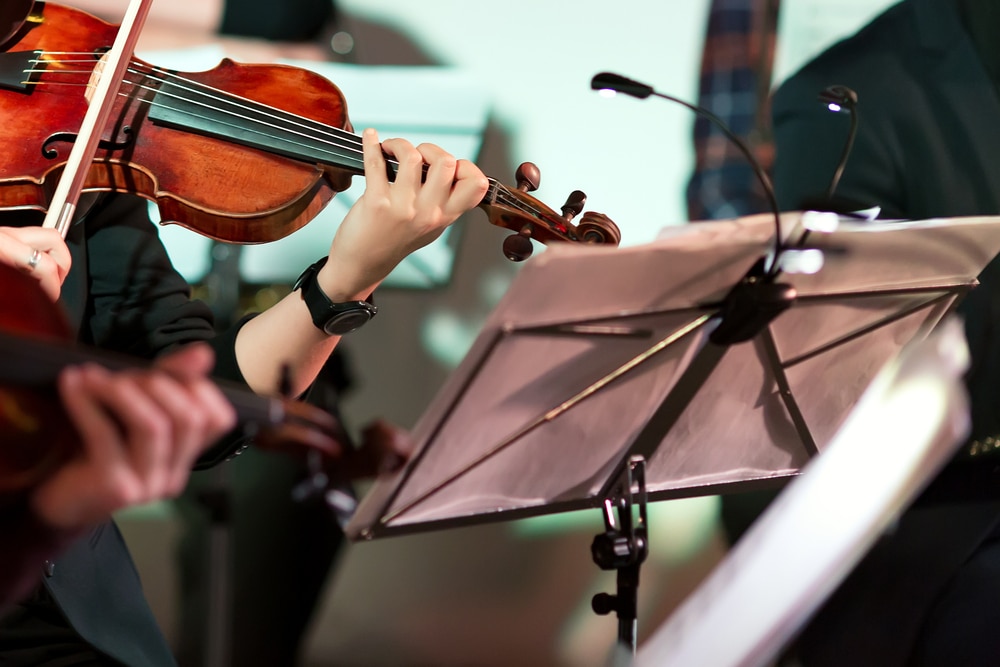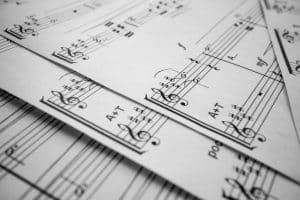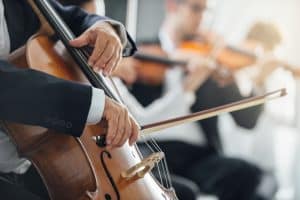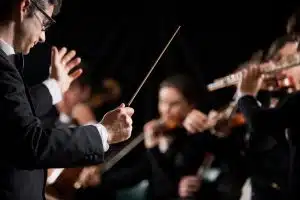Studying Music at UPenn
Studying at the University of Pennsylvania is a wise choice for several reasons, especially if you’re interested in music. UPenn is well-known for its high-quality education and has a strong reputation both nationally and globally. This prestige is reflected in its rankings, where it consistently places among the top universities in various categories.
UPenn offers a music major that is both diverse and comprehensive, designed to provide students with a solid foundation in various aspects of music. It ensures that students are not only knowledgeable about different musical genres and periods but also skilled in the practical aspects of music creation and performance.
Why Study Music at UPenn?
The Music program at UPenn stands out for its innovative approach. It provides students with opportunities to explore a wide range of musical traditions and methods, balancing performance, academic study, and composition. This variety ensures that you gain a comprehensive understanding of music, which is essential for a successful career in this field.
In 2023, UPenn achieved impressive rankings, reflecting its excellence in various fields. UPenn was ranked 6th among U.S. universities by the U.S. News & World Report. This ranking is based on various factors such as graduation and retention rates, faculty resources, and student-to-faculty ratios. Additionally, UPenn was placed 18th in best value schools and 59th in most innovative schools.
The university’s individual schools also garnered notable rankings. The Wharton School retained its top position as the best undergraduate business program in the country, excelling in several specialized areas including finance, marketing, and management. The School of Nursing was ranked 1st for its undergraduate nursing program, marking the second consecutive year of this achievement.
Moreover, the School of Engineering and Applied Science was ranked 22nd for the best undergraduate engineering programs, with a notable 10th place in bioengineering/biomedical engineering.
Performance opportunities at UPenn are plentiful. The university offers a range of ensembles and programs, including private instruction options through initiatives like the Marian Anderson Solo Performance Program. This program not only enhances your performance skills but also incorporates academic components, emphasizing UPenn’s commitment to developing well-rounded musicians.
Diversity and inclusion are central to the UPenn experience. The university is committed to creating an environment where students from all backgrounds can thrive. This commitment is evident in its diverse student body, inclusive campus policies, and a range of cultural and social organizations. Students are encouraged to engage with different perspectives, enriching their educational and personal growth.
Moreover, UPenn’s location in Philadelphia allows you to engage with the city’s vibrant cultural life, further enriching your learning and performance experiences. The university’s emphasis on integrating performance with scholarship means that you won’t just be learning music; you’ll be applying it in dynamic and meaningful ways.
Curriculum and Coursework of the Music Program
At UPenn, the music program requires a minimum of 34-course units for graduation. This includes a blend of general education requirements, free electives, and specialized music courses.
The core curriculum introduces students to European Art Music, American Music, and Ethnomusicology, offering a broad perspective on music from different cultural and historical contexts. Theory and Musicianship courses, integral to the program, focus on developing students’ skills in understanding and creating music.
Advanced courses like “Theory and Musicianship III,” along with “Composition I: Historical Practices” and “Composition II: Contemporary Practices,” enable students to apply their foundational knowledge in more complex scenarios.
These courses are essential for students who aspire to careers in composing or music theory. Additionally, the program’s inclusion of contemporary subjects such as electronic music systems and music recording aligns with the technological advancements in the music industry, ensuring students are equipped with up-to-date skills.
The Application Process
Applying to the Music Program at the University of Pennsylvania involves several steps, as outlined on the Penn Admissions website. Here’s a detailed guide on how to apply:
1. Application Platforms: UPenn accepts both the Common App and the Coalition Application for the admissions process, with no preference for either format. Applicants should review each platform and choose the one that best suits their needs. Only one application should be submitted per admissions cycle.
2. Application Deadlines: For the 2023-24 admissions cycle, the Early Decision deadline is November 1, 2023, and the Regular Decision deadline is January 5, 2024. An application fee is required, but fee waivers are available for those who qualify.
3. Early Decision Program: The Early Decision program at UPenn is binding. If admitted through this program, applicants are obligated to accept the offer of admission.
4. Required Documents: The application process requires several documents, including the Common App or Coalition Application with a Penn-specific essay, an official high school transcript, a school report, letters of recommendation, and a mid-year report. Early Decision applicants must also submit an Early Decision Agreement.
5. Standardized Testing Policy: For the 2023-24 admissions cycle, submitting SAT, ACT, or SAT Subject Test scores is optional. Applicants will not be at a disadvantage if they choose not to submit these scores.
6. Supplementary Materials for Music Applicants: Students with exceptional talents in music can include samples of their work as supplementary materials. These samples should be uploaded to an external host (like a personal website, YouTube, or SoundCloud) and then submitted as a document with URLs/links through the Penn Applicant Portal, which becomes available after submitting the Coalition or Common App and the Penn Supplement.
It’s crucial to thoroughly prepare and review all application materials to ensure they accurately reflect your academic achievements and musical talents. The process is competitive, and attention to detail can make a significant difference in the strength of your application.
Beyond the Undergrad Music Program
Master’s in Musicology
UPenn offers a Ph.D. program in Music Studies, which encompasses ethnomusicology, historical musicology, and the theory of music.
This graduate program is intended for students aiming to conduct high-quality research, produce scholarship, and develop teaching and professional skills for academic positions in music studies, as well as considering career opportunities beyond academia in both music and non-music domains. The program’s approach is to place different sub-disciplines in dialogue with each other, reflecting this orientation in the graduate curriculum and departmental colloquium series.
Doctorate in Music Composition
The Ph.D. program in Composition at UPenn emphasizes training in the craft of composition, contemporary repertory, and theory and analysis. Instruction takes the form of private lessons and seminars. Students are assigned to composition instructors on a rotating basis to expose them to various approaches and ensure access to different teachers.
A major composition serves as the dissertation at the doctoral level, and candidates must also submit an article-length essay on an analytical, historical, or theoretical subject. The program includes opportunities for public performance of student works and interactions with guest composers and professional musicians.
Beyond Degrees: Music Minors
UPenn offers two paths for the Music minor. One is a flexible path that allows students to choose five courses on topics in History, Theory, and Ethnomusicology. The other is the Interdisciplinary minor in Jazz and Popular Music Studies, designed for students interested in integrating their study of music with academically-based community service.
This minor is suitable for those who wish to incorporate knowledge of jazz and popular music performance into their degrees. The minors are designed to be flexible, enabling students to tailor their musical education to complement their major.
Performance and Practical Experience
A unique aspect of the music major at UPenn is its performance requirement. Students participate in various performance courses, including ensemble performances and programs like the “Marian Anderson Performance Program.”
These opportunities are not just about showcasing talent but also about gaining real-world experience in music performance. They help students develop a strong stage presence and improve their technical performance skills, which are crucial for a career in music.
Career Readiness and Skill Development
UPenn’s music program prepares students for a wide range of careers in the music industry, from performance and composition to music education and production. The program emphasizes the development of critical analysis skills, particularly through courses in music history and ethnomusicology, enabling students to contextualize music within its cultural, historical, and social frameworks. This analytical ability is valuable in fields such as music journalism, academic research, and cultural policy-making.
Moreover, the program encourages creativity and innovation, vital for success in the dynamic music industry. Students learn to think outside the box and develop their unique artistic voices. This creative prowess, combined with technical skills in music technology, prepares them for the digital era of music production and sound design.
Personal Growth and Community Impact
Studying music at UPenn extends beyond acquiring technical skills; it also contributes significantly to personal and emotional development. The program enhances students’ cultural understanding and emotional intelligence, fostering a deep appreciation for artistic expression. This holistic educational approach enriches students’ personal lives and prepares them to contribute meaningfully to society.
Additionally, the program’s community engagement and interdisciplinary collaborations extend its impact beyond the university. By engaging in local performances, workshops, and outreach programs, students and faculty bring music to a broader audience, promoting arts and music education in the community. Collaborations across different academic disciplines also lead to innovative projects, integrating music with fields like technology and healthcare.
Final Thoughts
The music program at the University of Pennsylvania is more than just an academic pursuit; it is a comprehensive journey that nurtures talent, fosters creativity, and prepares students for a diverse range of career paths. It instills in its students a profound appreciation for music and its role in society, making it an exemplary program for those passionate about pursuing music at a higher education level.
AdmissionSight, a college consulting firm, offers personalized assistance to students in their college admissions journey. We help you create a strategic plan for your application process, identify suitable schools aligned with your academic and personal goals, and prioritize your application strategy.
Our experts review your application, providing constructive feedback to enhance its quality and uniqueness. We also assist in crafting compelling essays that reflect your personality and achievements, guide you through the writing process, and offer feedback on drafts. In addition, we provide interview coaching to boost your confidence and readiness for college interviews, offering tips on professional presentation and answering common questions.
We aid in optimizing your extracurricular activities to align with your interests and goals, emphasizing leadership and initiative. Overall, AdmissionSight offers valuable guidance and support to increase your chances of college acceptance. With a strong network and a success rate exceeding 75% in the past decade, book a free initial consultation today!









































